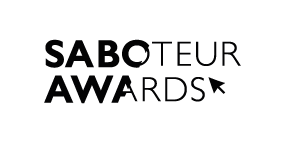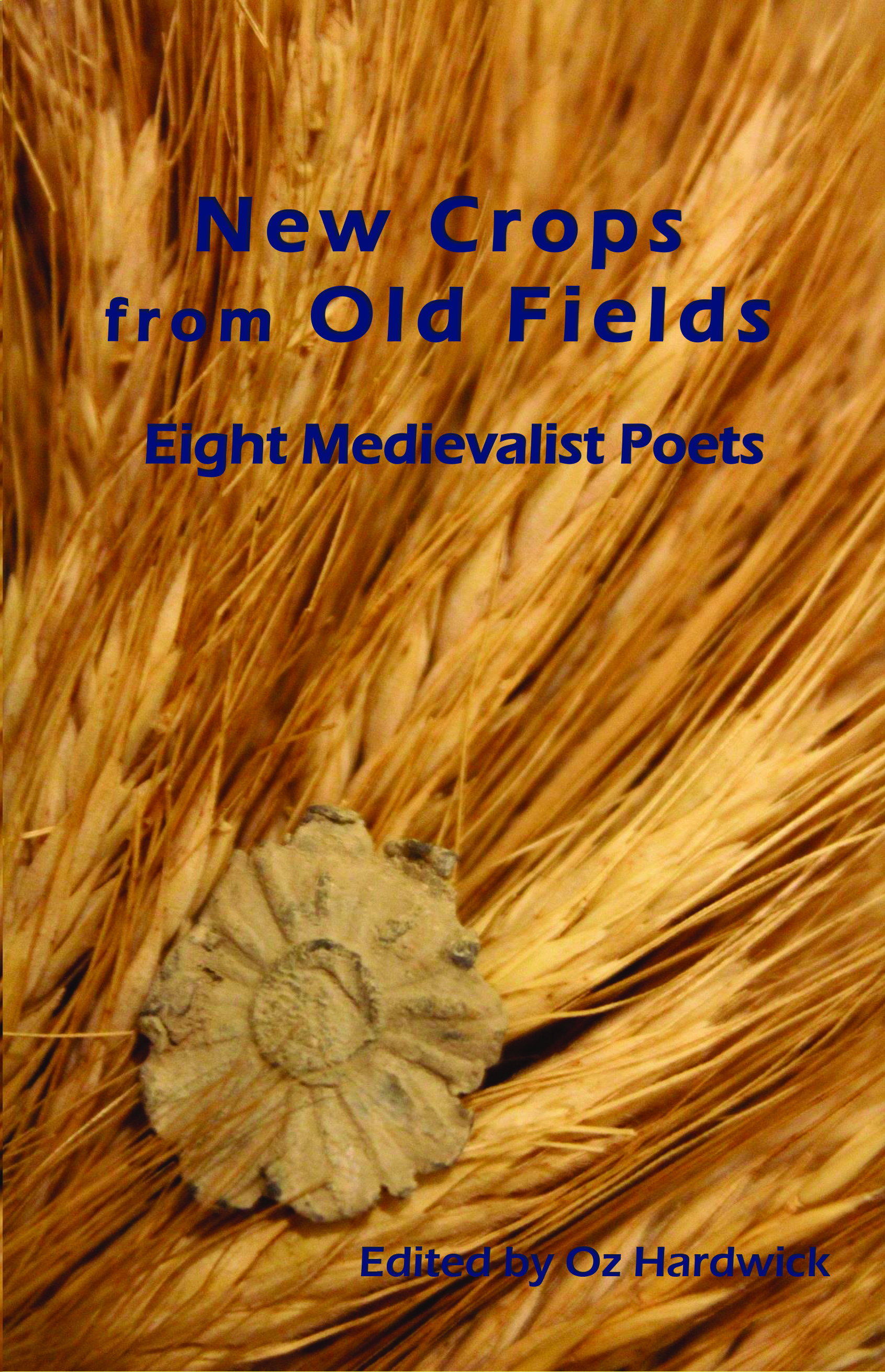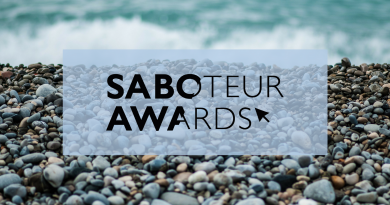Saboteur Awards 2015: Best Novella, Best Short Story Collection, Best Collaborative Work and Best Magazine
-In which Richard T. Watson– rounds up the Best Novella, Best Short Story Collection, Best Collaborative Work and Best Magazine Saboteur 2015 categories
Best Novella
Here at Sabotage we don’t review novels – plenty of people already do that – but we do review their smaller cousins, the novella. The small, quiet kid in the playground that no one notices because of all the noisier, bigger kids. That’s our kid. Here’s a sample of what some Saboteur Awards voters said about that kid.
This year, the nominees included Aliya Whiteley’s dystopian The Beauty (a ‘disturbingly brilliant portrait of a post-woman world that delves deep into the male and group psyche’), Evangeline Jennings’ Femme Noir No Christmas (described as ‘necessary’ and ‘incredible’ by voters) and Chloe Caldwell’s ’emotionally raw and beautifully written’ Women, which our reviewer called an ‘aesthetically pleasurable erotic mess’.
In a happy coincidence of the public-nomination process, this shortlist has as a common thread the experience of women in a masculine world. That they take opposite angles (The Beauty has no women in it, yet is intrinsically about women, and Women focuses heavily on women – clue’s in the title – gender issues and lesbianism) serves to highlight the diversity in the field.
The Beauty: ‘The writing and the story-telling are outstanding! Loved The Beauty.’ – ‘Because her prose is poetically beautiful and cuts like a knife to the bone. Because her ideas linger in the mind long after the book is finished.’ – ‘Strikingly original premise and beautiful prose.’
No Christmas: ‘A fantastically well-written story!’ – ‘Badassery’ – ‘Outstanding use of language’
Women: ‘A lot of reasons, one being that it defines a very specific experience/coming of age story for those of us that are still unstable and yearning and it does this while not making the book about men at all, even though the main character thinks she might be straight anyway. It’s great.’ – ‘Honest, beautiful and clear writing about a subject that is banal, sexy and exciting all at once.’ – ‘I love women!’
In a close second place was U. V. Ray’s dark The Migrant (‘Pushes the boundaries and was a very pleasing read.’), which also relates an ‘outside-mainstream’ experience and was described as ‘Utterly compelling – sometimes challenging but always holding the reader…. Wonderful!’
I have read this author’s other work and he is a solitary voice in the UK at the moment in his ability to document the lives of the dispossessed drug addicted underclass of which the UK has a growing number!’ – ‘Amazing author. A true glimpse to facets of life that not all are familiar with but should be.’
Almost as though to make my job here easier, the clear winner of this category also has the experience of women as a central theme: Heidi James’ The Mesmerist’s Daughter is a ‘brilliant contemporary fairytale’ described as a tour de force by more than one voter. The word ‘beautiful’ crops up quite a lot in voter comments too, mostly in relation to James’ prose style, and our reviewer uses it to describe the story’s unfurling.
‘Convincing the gentle reader to empathize with an unreliable narrator is no easy writing accomplishment but Ms James pulls it off with aplomb with her fascinatingly jumbled and distorted descriptions of the world as seen through the eyes of a mentally deranged young woman narrating her childhood memories.’ – ‘Heidi James has the ability to write prose that cuts through to the essence of the human spirit, that takes one on a ride into the unknown, with a mastery of the written word.’ – ‘Feminist fiction at it’s finest.’
Best Short Story Collection
We do like a good short story collection here at Sabotage, and here we have five of our readers’ favourites shortlisted. It was a very close race for this one.
Our shortlist included Anneliese Mackintosh’s ‘fearless and brave’ Any Other Mouth (‘A very strong voice in these stories with a raw, brutal honesty. Writing with emotion and clarity – a perfect mix’), Michelle Green’s ‘brave, thoughtful’ Jebel Marra (‘Superb collection which deals with issues few authors will take on. She approaches incredibly tough topics with integrity, verve and brio. At a time when so many authors regard navel-gazing memoir as the way to go, we need work like Green’s collection more than ever’) and Georgia Carys Williams’ ‘excellent debut’ Second-Hand Rain (‘This is an absolutely unique collection. It’s very thought-provoking, touching, dark and edgy. Expect the unexpected!’).
Any Other Mouth: ‘Anneliese’s incredible book broke my heart and mended it again about five times over. She is a brave and super-talented writer.’ – ‘This collection is wonderful, unique and challenging, pushes boundaries and is an important representation of grief.’ – ‘A very strong voice in these stories with a raw, brutal honesty. Writing with emotion and clarity – a perfect mix.’
Second-Hand Rain: ‘A superb collection of original short stories! The author has a unique way of immersing the reader into a story with some very creative and exciting perspectives.’ – ‘Fabulously written, deep dark, will have meaning to everyone who reads it. Couldn’t put it down.’ – ‘What a lovely read . Intense dramatic. A real page turner.’
Jebel Marra: ‘Jebel Marra is such a well written book, with insights that are at the same time heartwarming and heartbreaking. The characters are fleshed out and real, and their stories linger with the reader long after you read the book.’ – ‘It sparkles’ – ‘Beautiful and poetic prose about an otherwise unimaginable, gut-wrenching horror. She brings the war of ‘over there’ to our front door and there’s no side-stepping. Powerful and necessary book which needs to be read far and wide.’
Taking life rather less seriously was the ‘delightfully eccentric comic mirror’ Tales of Modern Stupidity by Quintin Forrest, in second place: ‘Almost certainly the funniest book on the shortlist. Certainly the only one involving Isle of Man property investment, cannibalism and talking bunnies.’
‘A great collection of short stories, satirical, pithy and fun.’ – ‘DELIGHT! cover to cover!’
But the winner, by a whisker, was Angela Readman’s ‘absorbing, wonderful collection’, Don’t Try This At Home, with its ‘disturbing mix of surrealism and lyricism’ from a writer who ‘knows exactly what to do with the genre and produces the tautest of stories, full of spell-binding imagination’.
‘Her stories are both surreal (in an innovative manner) and completely real, they hit home. I felt, as I rarely have, that this book had taught me, fed me, and inspired. Her writing is also beautiful.’ – ‘Angela Readman’s work is among some of the best I’ve ever read. I read her and want to be a better writer.’ – ‘Angela’s stories are perfectly crafted. While other people chase publicity, she’s simply worked steadily away at becoming the best writer she can possibly be. To award her is to reward decades of painstaking work.’
Best Collaborative Work
Our Best Collaborative Work award celebrates – you guessed it! – collaborations between artists in different genres and often across different media.
This year it included Guardian of the Edge, an ‘inspiring dialogue’ in which several visual artists responded to poetry by Agnes Marton (a publication described as being ‘made from pure energy and insight’), Close as Second Skins by Amina Alyal and Oz Hardwick, an ‘eloquent, elegiac’ printed version of their poetic collaboration with the taiko music group Kaminari UK (the stage shows comes ‘complete with taiko drumming, eerie stringed instruments and authentic Japanese theatre to counterpoint a haunting interplay of voices’), and the wide-ranging #Losslit Twitter-based writing project, curated by Aki Schilz and Kit Caless and described by one voter as ‘part game part writing exercise – all fun!’ which ‘floods Twitter with imagination, joy, wit, frenzy and gamut of other emotion’.
Guardian of the Edge: ‘Marton is not only an exquisite poet, but she is also a great supporter of other people’s work, and she has an eye for the best art to pair with the best work. A collaboration like this has no peer.’ – ‘Because of the quality of the poetry as well as the stunning artwork!’ – ‘a fascinating collaboration that brought together many visual artists from many countries to respond to and add new dimension to the words of Agnes Marton, in an unusual venue, and offering guided tours for visitors to learn more about how the collaboration worked, this work offers so many aspects of collaboration and bringing artists and artforms together to make something new.’
Close as Second Skins: ‘Beautifully rounded poems that rise like dough and together create a feast.’ – ‘Because they have taken collaboration to the next level’ – ‘Very sweet, very charming, very lovely.’
#Losslit: ‘It was either love it or get off of Twitter! Thankfully, the quality was there to justify the former.’ – ‘It’s an amazing stream of maudlin masterpieces’ – ‘#losslit brings incredibly diverse voices forward, meet new people, read incredibly moving (&funny!) stuff. The time limit gives an urgency, character limit brings ingenuity. most fun & accessible poetry collaboration I’ve experienced.’
Second place in this category went to Selkie Singing at the Passing Place, an ‘entertaining and enlightening collection of poems’ by Sarah Miller and Melanie Rees, described as ‘a fabulous collection of work from two extremely talented women who deserve to have higher profiles’ and ‘Just an amazing inspirational book that I could not put down!’.
But the ‘striking and memorable’ winner of this award was a collection of poems by Jacqueline Saphra, illustrated by Mark Andrew Webber, If I Lay On My Back I Saw Nothing But Naked Women in one ‘beautiful, surreal and eye-catching book’ – there’s also a musical setting for the poems composed by Benjamin Tassie.
‘Beautifully produced artwork in synergy with the words.’ – ‘Awesome prints with killer poetry’ – ‘The prints weave beautifully into the strong sensuous imagery.’ – ‘The words and pictures are in perfect harmony’ – ‘Shake those naughty bits!’
Best Magazine
Our Best Magazine Award celebrates regular publications featuring prose, fiction, visual art and occasionally other delights.
2015’s nominees included Pakistan-based, though global, arts and literature journal The Missing Slate, a ‘synthesis of the global and personal’ that addresses ‘cultural issues unflinchingly, with a perspective that is unbound to nation, race, class, gender, or religion’, the ‘quirky accessible unstuffy punchy moving’ Prole which publishes a ‘wonderful selection of prose and poetry, with great cover art’, and also the biannual Shooter Literary Magazine, described as filling a ‘much-needed slot for daring fiction and non-fiction by talented emerging writers’.
The Missing Slate: ‘Big variety of talent and material coverage. Also aims highly towards education on social issues and encouraging activism on global and local scales. Also very nice that their featured themes / authors are of diverse backgrounds from many parts of the globe.’ – ‘For their scope, generosity of perspective, for their commitment to contemporary world literature, for their daring in choosing and showcasing authors not yet known in English.’ – ‘The only magazine promoting international literature in Pakistan, described as ‘the most dangerous country for journalists in the world.’ There’s an eclectic range of poetry and fiction, including translations from around the world, but there are also pieces in which the authors have quite literally endangered their lives by being courageous enough to speak out.’
Prole: ‘This is a truly writer-friendly magazine that shares profits with its contributors.’ – ‘Prole is a consistently high quality poetry magazine. The editors are wonderful and they even give a share of any profits to the poets.’ – ‘Manages to be accessible and non-elitist without compromising on quality of poetry and prose.’
Shooter Literary Magazine: ‘An eclectic mix of imaginative, thoughtful and interesting fiction and factual experiences, all beautifully written and a delight to read. This publication deserves to do well and the next volume is eagerly awaited.’ – ‘Gorgeous magazine right out the gate. Fabulous content and design. This magazine is serious about being a a contender in the market and they’re off to a brilliant start.’ – ‘Hugely promising debut, doing everything right editorially. Very high production values.’
Bare Fiction followed up last year’s nomination with the runner-up slot this year, once again impressing voters with its ‘consistently high standards’, ‘good editorial standards and a balance of good quality writing in each genre they feature’ and ‘impeccable taste’. It’s described as an ‘excellent journal with a wide range of writing, not just poetry and prose fiction but play extracts and creative non-fiction as well.’
It’s a great magazine, lots of variety in the content with something for everyone. I would not be without one on my coffee table. Guests have all commented on being able to pick it up and have a short read… great to dip into whenever you have a spare half an hour. Just love it.
But the winner this year was Lighthouse Literary Magazine, ‘A beautiful little gem that takes risks with its poetry choices’ publishing ‘consistently excellent writing’, ‘fantastic poetry and prose’ in a ‘good mix of short fiction and poetry, coverage what seems to be all genres from concrete poetry to more Modernist things.’
‘No one commingles tradition and progression like these guys.’ – ‘Just plain excellent.’ – ‘Love the layout and the way in which it gives a voice to unknown writers who have so much to offer. Great name, too. Quality magazine.’ – ‘The quality of the editing work being done at Lighthouse is the best in the UK at the moment. Their team of editors has direction and priorities; this creates identity with a capital I.’




